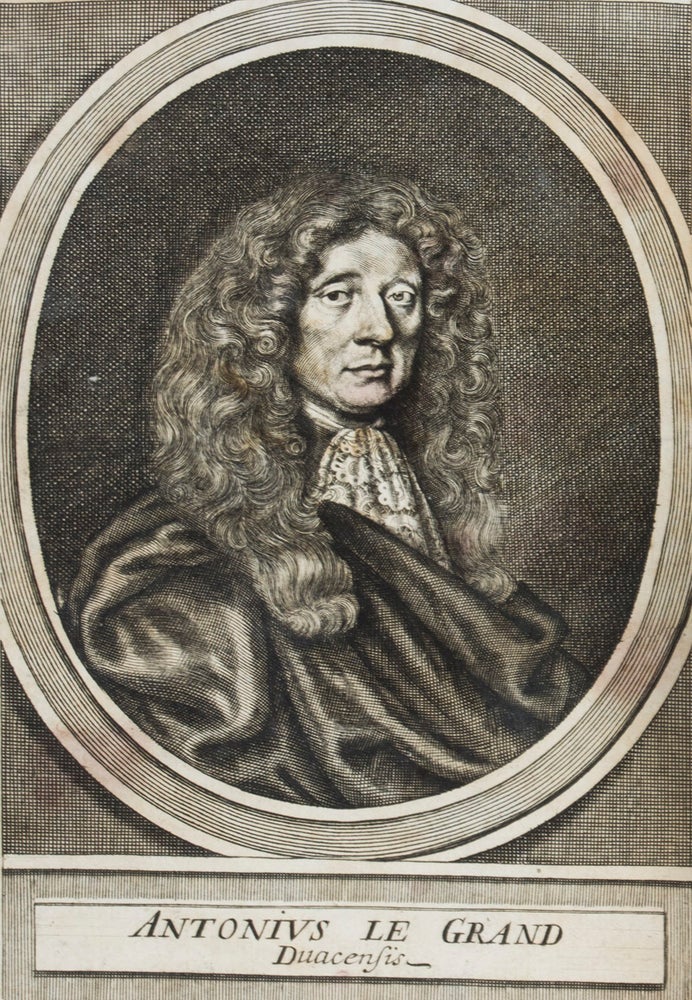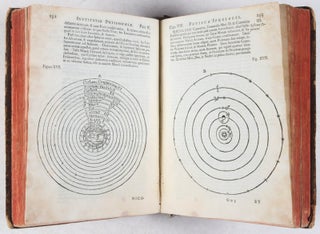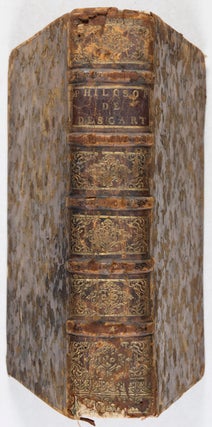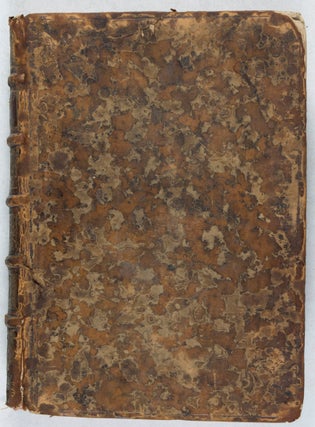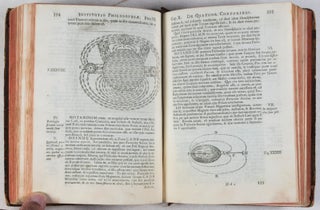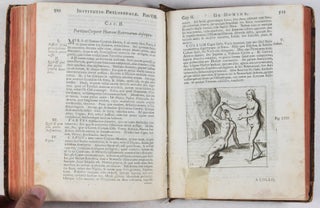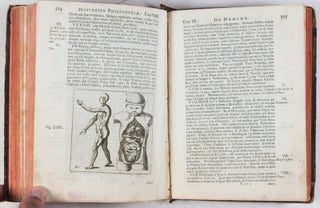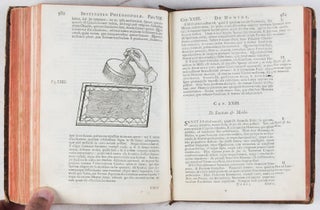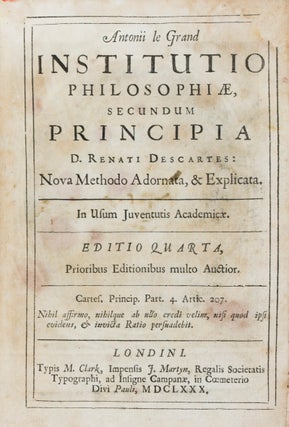Institutio Philosophiae, secundum principia Domini Renati Descartes: Novo Methodo Adornata & Explicata
Londini (London): M. Clark, 1680. Fourth edition (Editio quarta). Hardcover. Large octavo. [4], XVI, [18], 731, [1]pp. Original spotted calf, with gold lettering and tooling on spine. Raised bands. All edges red. Marbled endpapers. Engraved frontispiece portrait of Antoine Le Grand. Decorative initials. Originally published in 1672, this work was a milestone in the history of philosophy, as it introduced and promoted Cartesianism in Great Britain. Cartesianism is a philosophical doctrine (or school) of René Descartes, often regarded as the first thinker to emphasize the use of reason to develop the natural sciences. For him the philosophy was a thinking system that embodied all knowledge, and expressed it in this way: Cartesians view the mind as being wholly separate from the corporeal body. Sensation and the perception of reality are thought to be the source of untruth and illusions, with the only reliable truths to be had in the existence of a metaphysical mind. Such a mind can perhaps interact with a physical body, but it does not exist in the body, nor even in the same physical plane as the body. In general, Cartesian thought divides the world into three areas of existence:
- 1) that inhabited by the physical body (matter),
- 2) that inhabited by the mind
- 3) that inhabited by God.
According to Anthony Wood, a contemporary of Le Grand's and an historian at Oxford, Antoine Le Grand's "Institutio Philosophiae, secundum principia Domini Renati Descartes" was a “must read” at Cambridge (Wood, 1691, p. 620). Further attesting to the attention it attracted, Jean Robert Armogathe has detailed how the 1678 edition of this work came to be placed on the "Index" in 1709 because of its anti-scholastic arguments (Armogathe, 2003). In this volume, Le Grand defends the first principles of Descartes's philosophy with great fidelity. He holds to Descartes's views that the essence of matter is extension; that the essence of mind is thought; that material substance and mental substance are essentially, and really distinct; that mind and body interact; that while humans have souls, brutes and other living things are mere machines; and that material things operate by means of moving parts according to the laws of motion. Le Grand did not make any substantial revisions to Cartesian metaphysics. However, he did make two important contributions: first, he attempted to clarify Descartes's account of motion which had direct consequences for the Cartesian account of matter, causation, and mind-body interaction; secondly, he extended the scope of Cartesian physics, treating such subjects as metals, plants, insects, animals, and the human body in detail. This book contains 69 in-text figs.
Binding rubbed along edges. Minor abrasion to back cover. Head and tail of spine partly chipped. Non abrasive tape at lower margin of pp.511/512 (not affecting text). Moderate foxing and water-staining throughout. Text in Latin. Binding in overall good-, interior in good to good+ condition. g. Item #38898
About the author: Antoine Le Grand (1629–1699) was a philosopher and catholic theologian who played an important role in propagating the Cartesian philosophy in England during the latter half of the seventeenth century. He was born in Douai, (at the time under rule by the Spanish Hapsburgs), and early in life was associated with an English community of Franciscans who had a college there. Le Grand became a Franciscan Recollect friar prior to leaving for England as a missionary in 1656. In England, he taught philosophy and theology, advocating Catholicism and eventually Cartesianism, the latter being as unpopular as the former was perilous. It is not clear how Le Grand came to Cartesianism, but the first evidence of his adoption of the new philosophy was in his "Institutio Philosophiae," originally published in London in 1672. His early works show affinities to the philosophies of Seneca and Epicurus. He is noted for his polemical exchanges with Samuel Parker and John Sergeant, and for having given Descartes's work a Scholastic form so that it would be accepted in the schools.
Price: $375.00

